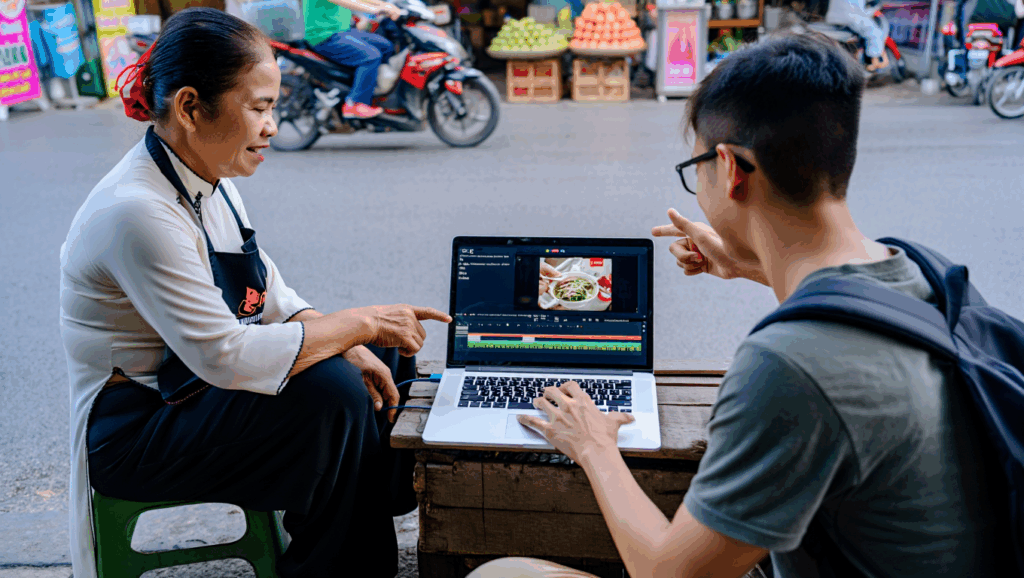I left in August 2022 with my laptop and a stubborn curiosity. Two years on the roads of Asia, until May 2024. We loved the strangeness of a daily life reinventing itself: dawn markets, over-air-conditioned buses, hospitality overflowing from one cup of tea to the next.
And then, amid those images, a quieter feeling: life slipping through your fingers, working in places you don’t really live in, “consuming” a country rather than helping it. After sliding from one coworking space to another, you end up skimming—and skimming wears down meaning.
Coming back to Belgium in late spring 2024 felt like a mirror. Everything generous and beautiful I’d seen lived alongside blind spots: assignments that “look good,” the temptation to explain instead of listen, the illusion of fixing things fast. I re-read analyses of “white saviorism”: that reflex to show up with good intentions and a narrative that puts us at the center, often at the expense of local autonomy. I recognize myself by ricochet, and it forces me to change my method: if volunteering reproduces imbalances, we have to reverse the movement—start with expressed needs, and leave the keys when we go.
In summer 2025, while coming home is still complicated, I decide to return to Asia—but differently. I open Nomad Impact the way you open a fresh notebook: a promise of less, but better. My ambition is modest and demanding: deliver simple, documented, reusable tools—and step aside. I write to associations I meet through contacts and recommendations—the list is still growing today. CFSWF replies almost immediately. “It’s not every day someone offers you a free website out of the kindness of their heart,” they tell me—and the sentence jars me as much as it carries me. I’m not offering a favor; I’m proposing precise, structured, transferable work that serves their need, not mine.
Practically, my method comes down to three verbs: listen, produce, transmit. Listen to understand what’s truly missing (to inform? recruit? reassure?). Produce the essentials: a website you can update without calling a contractor; a visual kit that runs on an aging computer; templates you can open without a subscription. Then transmit: a plain-language user guide, a short training, and the check that the team can carry on without me. If I leave and everything holds, then I’ve done my job.
I don’t idealize my position. I’ve been a digital nomad; I’ve benefited from ecosystems where our currencies weigh heavy. I know our presence can push up rents, shift uses, and smooth out neighborhoods in favor of our globalized routines. Acknowledging that already means choosing a different role: limiting one’s footprint, working on request, and giving back the power to act where it’s been siphoned away.
Nomad Impact isn’t a grand program. It’s a work hygiene. I refuse to replace local jobs, I refuse theatrics, I refuse the shiny tool that dies the next day. I prefer lightweight structures, “just-enough” deliverables, and documentation that makes everyone freer. It’s less spectacular, but it’s what remains when I’m gone.

